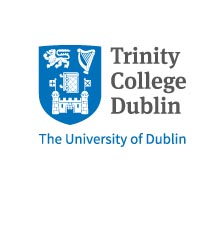Course Description
Micro-credential – Advanced Spatial Analysis using GIS
Trinity College Dublin
This micro-credential is for professionals who work with spatial data and/or maps and would like to have the ability to analyse this data and create new maps and spatial information.
The production of good informative maps and the analysis of spatial data are valuable but scarce skill sets. With developments in GPS, mobile devices, and software, organisations are now collecting more and more spatial data and need spatial specialists to manage, analyse and report this data.
Local authorities, civil engineering consultancies, environmental agencies, utility companies, among others, are increasing their use of GIS to manage their valuable spatial data.
This micro-credential will enable learners to get a practical introduction to the QGIS open-source software and will use the software to address an issue in their field.
Examples of projects completed by students recently include the identification of the best location for a new waste-to-energy plant, a study of the relationship between tree cover and household income, the siting of a new mass-vaccination centre, a study of the effect of green-ways on the local population. In each of these, publicly available spatial data was used to investigate a topical issue.
How will this Micro-credential be delivered?
This micro-credential required in-person attendance once a week – Wednesdays 9:00 am – 12:00 noon.
On successful completion of this micro-credential, learners will be able to:
- Understand and apply the extended fundamentals of GIS theory and techniques in a research project that is in a field related to your profession and uses GIS.
- Investigate and solve Spatial Analysis problems by applying the latest interdisciplinary approaches.
- Critically select and implement a technical solution that best addresses a spatial analysis problem.
- Identify and use appropriate mathematical methods, numerical techniques, and GIS tools for application to new and ill-defined spatial analysis problems.
- Communicate effectively in technical and scientific writing, and present scientific/technical ideas concisely to a technical audience that may not be expert in the specific domain of the presentation.
HCI Pillar 3 Learner Fee Subsidy: Candidates who meet the eligibility criteria may qualify for an 80% fee subsidy, subject to the availability of subsidized places.
For eligibility details, please refer to the Eligibility Criteria.
| Course Code | DPEEG-ASAG-1M01 |
| College Name | Trinity College Dublin |
| Course Category | Science & the Built Environment |
| Course Type | Micro-credential |
| Course Location | Dublin, Ireland |
| Location Postcode | Dublin 2 |
| Course Start Date | 8th September 2025 |
| Course Fee | €1560 |
| Course Duration | 12 weeks |
| Awarding Body | Trinity College Dublin |
| Title of Awarding | 5 ECTS |
| Entry Requirements | Applicants must have • Level 8 award 2.1 grade in Engineering, Science or any discipline in which GIS may be used. Computer skills such as proficiency in Excel are essential. • Degree Parchment or transcript • Curriculum Vitae Application closing date 12th August 2025. |


Comments, Questions & Reviews